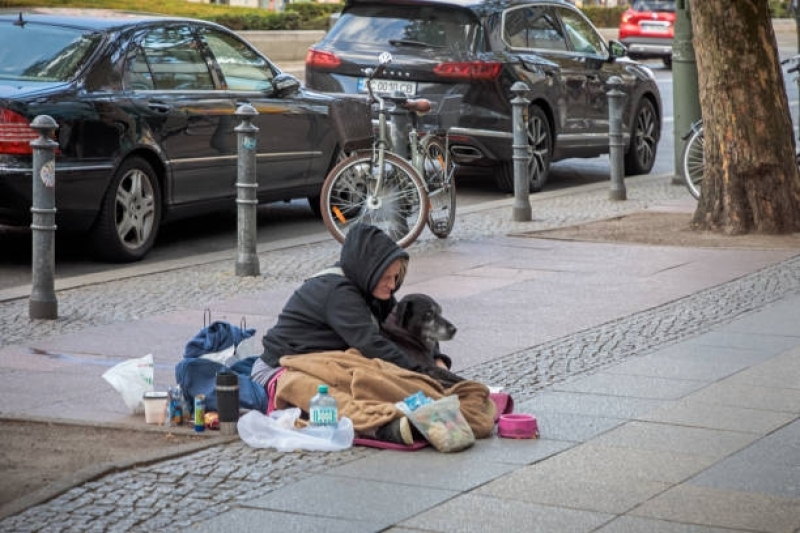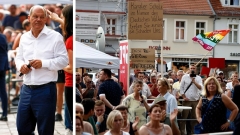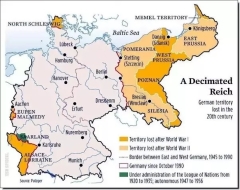What can Germany do if Russia stops gas supplies?
Gazprom has started annual maintenance work on Nord Stream 1. The Baltic Sea pipeline will be shut down for ten days. Should Russia not refill them afterwards as a means of exerting pressure, Germany needs alternative plans.
In April, Russia had already turned off the gas for Poland and Bulgaria, and now it could also affect us. Ten-day maintenance work on the Nord Stream 1 pipeline in the Baltic Sea begins on July 11. Around 70 percent of the gas that we purchase from Russia flows through it. The absolute quantity has already fallen significantly since mid-June because operator Gazprom is said to be unable to obtain spare parts from Siemens for a gas turbine due to Western sanctions.
The federal government now fears that Russia could use the maintenance work as an excuse to completely turn off the gas supply to the Baltic Sea. A technical problem could be invented for this, if necessary a delivery stop could be openly announced. Federal Minister of Economics Robert Habeck (Greens) warned against a “blockade of Nord Stream 1” in an interview with the Süddeutsche Zeitung on Thursday. The head of the Federal Network Agency, Klaus Müller, also warned that the scheduled work could become "long-term political maintenance".
In this case, natural gas would be scarce in Germany. Energy suppliers and industry would then have to cover the lack of imports from Russia on the world market. There the prices are higher than on the supply contracts with Russia. Although the details are not known, the global price of natural gas has increased by 56 percent since last July. Recently, however, it went down significantly – also due to the weather. In June, the price fell by 38 percent.
Nevertheless, it will be expensive. The federal government now has several options for reacting to this.
1. Loans or partial nationalization of energy suppliers
The first to be affected by a gas stop from Russia would be the importers. The most prominent example is currently the energy giant Uniper. According to its own information, the Düsseldorf-based company only receives 40 percent of the agreed volumes from Russia. Uniper has to buy the difference expensively on the world market, but cannot pass on the price increases because lower prices are fixed in its customer contracts in the long term. There is a risk of bankruptcy.
The scenario not only affects Uniper, but also the nationalized Gazprom subsidiary Germania and the storage operator Wingas. In all three cases, the Reconstruction Loan Corporation (KfW) stepped in with cheap loans. Partial nationalization is also being discussed at Uniper – similar to what the federal government did at Commerzbank during the financial crisis and at Lufthansa during the Corona crisis.
The advantage of such solutions: the prices would not increase for end customers. In the best-case scenario, the state could even earn money with its loans and corporate shares after the crisis. The disadvantage: in the short term, the state budget will be significantly burdened.
2. The gas surcharge
Instead of supporting energy suppliers and importers with state funds, the federal government could also spread the financial burden of a delivery stop from Russia on all of Germany's shoulders. The instrument for this would be a gas levy, i.e. an additional levy for every customer and every company with which the higher procurement costs are distributed. The surcharge would be based on consumption, i.e. increase the price per cubic meter. Both politicians and the economy think of such an instrument more than the price shifting previously provided for in the Energy Security Act, in which suppliers are allowed to pass on higher prices to their customers to a certain extent. This paragraph is worded so vaguely that no one knows how to apply it correctly. A gas surcharge would be much easier to implement.
The advantage of this solution: Firstly, the state budget would not be additionally burdened in this way. Second, the surcharge is based on consumption. If you heat little or save gas in your company, you also pay less.
The disadvantage of this solution: people with low incomes in particular would be heavily burdened. Compensatory measures might have to be created for you. In addition, time is of the essence. In order for a gas surcharge to be implemented in good time, it would have to be decided in the cabinet this Friday and inserted into the Energy Security Act.
3. Gas rationing
The third stage in the current gas emergency plan is probably the most radical way of reacting to a Russian delivery stop. The federal government may declare this "emergency level" in the event of a significant disruption to the gas supply. That would probably not be the case in July, but at the latest if a delivery stop extends into autumn and winter, when buildings have to be heated more often.
In the emergency stage, the state intervenes in the distribution of natural gas in the country. Protected customers – these are private households, public institutions and healthcare facilities – would then be given priority. They account for around 48 percent of consumption. The other 52 percent - mainly industry and other companies - have to see where they get their gas from.
The advantage of this solution: the supply of gas to the population and the maintenance of public order, i.e. in particular hospitals, the police and the fire brigade, would be secured. In the best-case scenario, gas consumption in Germany would be halved in one fell swoop.
The disadvantage of this solution: Obviously, the economy would suffer. Some industries, for example the chemical industry, steel, glass, but also many food manufacturers, cannot switch their production to other energy sources in the short term. There is a risk of production losses and higher unemployment. In the worst case, this could cost more than 100 billion euros.

Comments to this:








